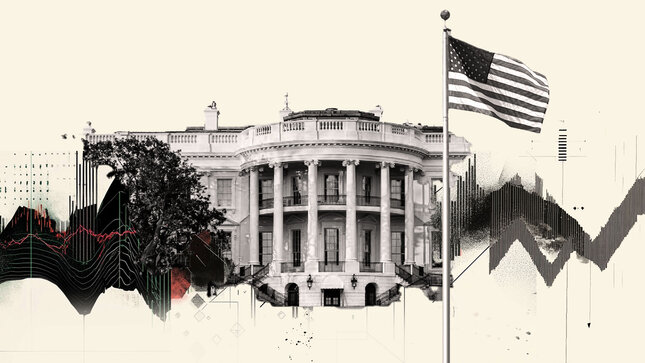You’re reading this article on a blog about algorithmic and copy trading. So at first glance, it would appear to have nothing to do with human psychology or even the psychology of trading. But it does.
Flaws in the human mind are precisely the reason you should turn your attention to robots or to copy trading services. You can either do that, or master trading psychology to master your own mind so you can win in the challenging game of investing.
The psychology of trading is a huge topic but it’s relatively simple. It’s very often neglected by most traders, but mastering the trader’s mind is absolutely crucial if you want to become a profitable trader.
In my professional career, I’ve recorded hundreds of webinars and spoken at seminars across the globe. It always amazed me that the topic of this article was almost always the least popular one among traders and investors. They have a whole spectrum of interests like; how to create a trading system, Fibonaccis, scalping, harmonic patterns etc, but working on their own mind is not one of those interests! Luckily, I know where they’re coming from and why traders ignore psychology.
Me? I’m all right mate, thanks
First of all, people don’t even know that they can have any problems with their psyche. Trading is supposed to be a math/gambling/betting/finance-related activity, where knowledge, experience and ‘a feeling’ wins. If you don’t think so, find people who are trading bitcoin or buying the dip on the NYSE, or buying contracts on Gold, and ask them how much they know about trading psychology. I’ll bet you that you’ll hear a lot of funny answers, the vast majority of them would be considered far from the truth.
Basically, every beginner wants to learn strategy, candles, indicators etc, and once they learn those things, they think they’re ready to start trading with real money. Often, they don’t even want to learn the basics and start trading on a feeling that ‘the dollar is collapsing’ or that ‘gold has got to go up’. Those feelings are enough for them to put their savings on the market.
There are two possible reasons for this. The first is that people are genuinely not aware that psychology is a key factor in trading. The second is that they’re sure they have what it takes to be profitable.
Interestingly, this can be observed in the wealthy and generally successful individuals, usually with big ego. A doctor, entrepreneur or a lawyer, enters the trading world thinking it’s fairly easy because they’ve accomplished something in their professional life. They approach trading like it’s just another thing that can be done without any special preparation. “I built this million dollar company from scratch, for sure I can trade a few currencies” ,or “Mate relax, I do open heart surgeries with closed eyes, I’m sure I can trade futures profitably”. Can you though? Can you really?
Why trading psychology is the key to profitable trading
So far, I’ve explained trading psychology without sharing any real proof of it. I’ve bashed people who are unaware of the importance of human psychology, and that’s not nice. Let me try a different approach.
I’ll start by stating the fact that 70-80% of people lose money while trading. 20-30% make money. This data differs but in general it’s in line with brokers’ reports. What’s important is that this ratio doesn’t change across years, decades and who knows, probably even centuries. For more insight into this, I highly recommend reading the ‘Reminiscences of a Stock Operator’ by Edwin Lefèvre. This book is a real well of wisdom. It contains timeless insight on trading and investing. It was published in 1923, years before the first personal computer was invented.
The book tells the story of Jesse Livermore, a day trading pioneer, who was trading at the turn of the 19th and 20th centuries. Back then, access to knowledge was limited, there were no ebooks, webinars and youtube channels. You couldn’t type “how to trade forex” on google and receive 1525372752 results in one second. You had no trading platforms, charts with sophisticated indicators and flashy charts. You have that now and what significance has that had on the number of traders who are profitable? You’re not going to believe this but …
The percentage of profitable and losing traders is more or less still the same
Wait what? Subscribing to 10 Youtube channels, attending 10 paid courses and buying two extra screens to monitor 12 charts at the same time is not improving your results and increasing the number of profitable traders? Why is that happening?
It’s because you can have all the knowledge in the world and still suck at trading! That’s because knowledge is not the most important factor in trading. The most important thing, by far, is psychology and your mind, period.
You can spend weeks on learning some sophisticated trading technique, or months mastering some complicated concepts, and still not be able to earn a living with trading. You can have a perfect understanding of every movement but if your psyche is in the wrong place then you will not be able to make profits in the long term.
Why does psychology complicate trading?
It’s a very broad topic but luckily our SEO experts advise me to write 2200 word articles, so I have some space to explain this.
Imagine you have a perfect trading signal which you obtained using some top-notch sophisticated technique. Formation of a bat, riding a rhino in a sunset. Yeah, let’s call it that.
You open a trade and instantly make profits. Then, the price reverses and you see a huge red loss in your equity. What do you do?
If you’ve got your head on straight, you’ll have a stop loss in place and your position will simply close on a small loss. If you’re not thinking straight and your mind is weak, you won’t have a stop loss in place, or worse, you cancel it. You react because you fear losses and hope the odds will turn in your favor. You could be scared of being wrong, or feel too confident about your skills, or fall for one of many other psychological traps. The thing is, all of those reaction are the result of a weak mind. That’s not the mind that successful traders have.
Simply put, even if you have the best trading system, you’ll still need proper discipline, motivation and persistence to use it properly. You need a cool head to properly use your money and risk management tools. You need to be able to completely abandon hopes, wishes, fears, and emotions. You know who can do that? Amazing traders and properly programmed robots.
You do not lack knowledge
Most of you probably have all the knowledge you need to make money on the markets. You buy low and sell high. Of course, I’m joking, trading is not that easy, but still it’s pretty simple. Humans tend to overcomplicate it. What makes it hard are humans themselves. They complicate it because of their weak mind.
Listen, no one is a born trader. Frankly speaking, we’re naturally inclined to be terrible traders. We don’t like to admit our own mistakes. We tend to argue and defend our rights, sometimes even when we know that we’re wrong.
We also have problems letting go and not pursuing vengeance or revenge. We lie to ourselves. Sometimes we’re too confident, sometimes we’re not confident enough. We are too scared, optimistic, pessimistic or just simply irrational.
We get carried away by our emotions. All of that, which is natural for us, is terrible for being a profitable trader.
You know candles, formations, supports and resistances. Seriously, that is more than enough, what you lack is the traders’ mind. Worry not, your mind can be trained! The first step is to understand that it is the missing piece of the puzzle.
How to train a proper trader’s mind
You’re reading this article on a blog, written by a guy who’s coded trading robots and is allowing you to copy their trades. So making you a better trader is not really in my best interest, but of course I’m willing to share with you some of the wisdom I’ve gleaned over my 15 years experience in trading. That’s because first, I’m a nice guy and second, it’s really not rocket science. It’s not that traders don’t know what they should fix or work on. It’s that they simply ignore it or don’t have enough discipline to carry it through.
The psychology of trading
First of all, if you want to make profits you need to learn how to lose money. Nobody likes it, sure, but in trading it’s just a part of the game. If you fixate your mind on not losing, you will not win. You can’t avoid losses at all costs. Sometimes it’s happening, because you can’t always be right and you can’t always predict the right direction. It’s simply not possible, so stop chasing that dream. Allow yourself to make mistakes. The key is that those mistakes, and as a consequence the losses you incur, cannot be big. Risk management is your friend. Losses should be small enough not to bother you. They can’t make you poor or scare you or anything like that. Trading 1% of equity is usually a good number. If you allow yourself to trade 5% or more, you may as well wrap a white headband around your head, shout out KAMIKAZE, and hit the wall. Your results will be pretty much the same.
Many traders feel hurt when they lose. Their ego suffers. Sometimes it leads them to opening bigger positions to cover their initial loss. Then they lose again, and that’s how the spiral of death begins. You can avoid it. You don’t avenge your losses. You close your trade, forget about it, and move on. You look for the next great setup and forget all about the loss.
You also can make mistakes while winning
Did you ever wonder why traders make great why on demo accounts with fake money and on real accounts don’t do as well? It doesn’t always happen but there’s definitely a pattern there. The primary reason is they don’t feel big emotions when they’re trading paper money and the second reason is that after a success on a demo, they feel too confident entering the real account. Paper wins make them think that trading is easy. If you are too cocky, the market will quickly teach you a lesson. If you’re not humble, the market will make sure to humble you. Winning is good but do not fly to the moon after that. Stay focused and do your stuff. You are not the best trader in the world, at least not yet.
So why are robots successful?
First, a small disclaimer. Not all robots are successful. The fact that my robots can make money on the markets does not mean that all robots work. My algorithms work because of many reasons. Today I will focus on the two most important ones. The first one is that they trade using good trading practices, and the second one is that they simply ignore all the emotions associated with trading.
Wait a minute, robots don’t feel emotions! While this is true, some robots are programmed in a way that can copy the same mistakes that humans make and those mistakes have their roots in the flaws of the human psyche. For example all robots that try to avoid losses at all costs and don’t use stop losses simply repeat human weaknesses but in a form of a code.
I can only speak for myself and for what I’ve coded. From this perspective, I can tell you that having algorithms trading for you is absolutely marvelous. When I was trading manually, I managed to train my mind enough to make money, but robots have definitely taken that trading up a notch.
To let it go completely you need a certain level of trust in your code, but if you code it yourself, the trust is part of the package. If you just follow someone’s robot, you still need to be cautious, but your psyche will be more relaxed looking at the robot’s verified results, like those here.
Really, it’s all about your mind
Time to wrap up this article. If you’re strongly motivated to become a successful trader, then my advice is to focus on your mind. I don’t see other options. You can be lucky once or twice but in order to be profitable in the long-term, a strong traders’ psyche is crucial! One way to bypass it is by using expert advisors, like those from Quantiforce. The results speak for themselves.
Trading FX/CFDs on margin bears a high level of risk, and may not be suitable for all investors. Before deciding to trade FX/CFDs you should carefully consider your investment objectives, level of experience, and risk appetite. You can sustain significant loss.
Editors’ Picks

EUR/USD: Yes, the US economy is resilient – No, that won’t save the US Dollar Premium
Some impressive US data should have resulted in a much stronger USD. Well, it didn’t happen. The EUR/USD pair closed a third consecutive week little changed, a handful of pips above the 1.1800 mark.

Gold: Metals remain vulnerable to broad market mood Premium
Gold (XAU/USD) started the week on a bullish note and climbed above $5,000 before declining sharply and erasing its weekly gains on Thursday, only to recover heading into the weekend.

GBP/USD: Pound Sterling remains below 1.3700 ahead of UK inflation test Premium
The Pound Sterling (GBP) failed to resist at higher levels against the US Dollar (USD), but buyers held their ground amid a US data-busy blockbuster week.

Bitcoin: BTC bears aren’t done yet
Bitcoin (BTC) price slips below $67,000 at the time of writing on Friday, remaining under pressure and extending losses of nearly 5% so far this week.

US Dollar: Big in Japan Premium
The US Dollar (USD) resumed its yearly downtrend this week, slipping back to two-week troughs just to bounce back a tad in the second half of the week.
RECOMMENDED LESSONS
Making money in forex is easy if you know how the bankers trade!
I’m often mystified in my educational forex articles why so many traders struggle to make consistent money out of forex trading. The answer has more to do with what they don’t know than what they do know. After working in investment banks for 20 years many of which were as a Chief trader its second knowledge how to extract cash out of the market.
5 Forex News Events You Need To Know
In the fast moving world of currency markets where huge moves can seemingly come from nowhere, it is extremely important for new traders to learn about the various economic indicators and forex news events and releases that shape the markets. Indeed, quickly getting a handle on which data to look out for, what it means, and how to trade it can see new traders quickly become far more profitable and sets up the road to long term success.
Top 10 Chart Patterns Every Trader Should Know
Chart patterns are one of the most effective trading tools for a trader. They are pure price-action, and form on the basis of underlying buying and selling pressure. Chart patterns have a proven track-record, and traders use them to identify continuation or reversal signals, to open positions and identify price targets.
7 Ways to Avoid Forex Scams
The forex industry is recently seeing more and more scams. Here are 7 ways to avoid losing your money in such scams: Forex scams are becoming frequent. Michael Greenberg reports on luxurious expenses, including a submarine bought from the money taken from forex traders. Here’s another report of a forex fraud. So, how can we avoid falling in such forex scams?
What Are the 10 Fatal Mistakes Traders Make
Trading is exciting. Trading is hard. Trading is extremely hard. Some say that it takes more than 10,000 hours to master. Others believe that trading is the way to quick riches. They might be both wrong. What is important to know that no matter how experienced you are, mistakes will be part of the trading process.
The challenge: Timing the market and trader psychology
Successful trading often comes down to timing – entering and exiting trades at the right moments. Yet timing the market is notoriously difficult, largely because human psychology can derail even the best plans. Two powerful emotions in particular – fear and greed – tend to drive trading decisions off course.


